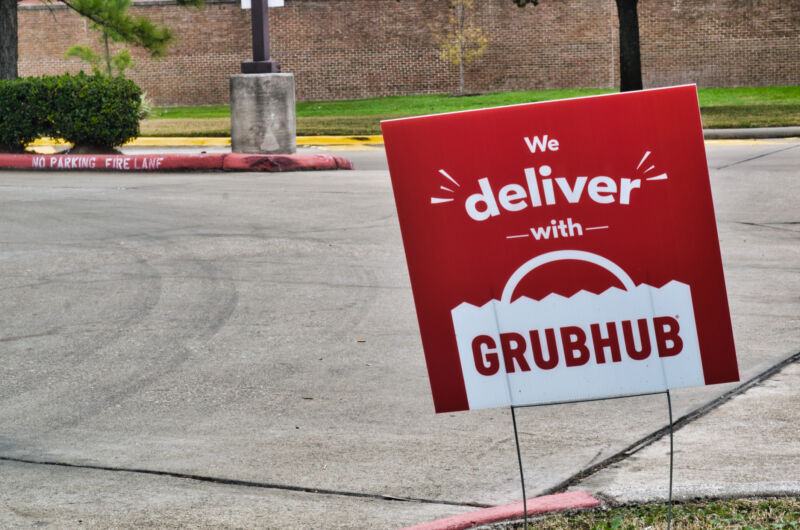
California-based workers for food delivery app Grubhub have reacted angrily to changes to the platform which they say discourage tipping, saying they would wipe out the supposed benefits of new gig worker rules in the state.
Last month, California passed Proposition 22, which though falling far short of the benefits received by full-time employees, gave gig workers a limited number.
Weeks after the ruling, Grubhub reduced its default tip amount from about 20 percent to zero, adding a suggestion to “leave an optional tip on top of driver benefits.”
Like other apps, Grubhub added an additional “benefit” fee, in its case $1.50, to each order in California—though that money is put into a centralized pot for which only a limited number of drivers are expected to fully qualify.
“[The] benefits are not nearly high enough to compensate for encouraging no tipping,” wrote one Grubhub worker on Reddit.
“Such bullshit to drive this wedge between customers and drivers,” wrote another. A third added: “This is chilling. Really disappointing.”
Under Proposition 22, workers receive a healthcare stipend, provided they clock at least an average of 15 hours per week on one of the gig apps. However, in order to qualify, workers must already be the primary policyholder on an existing healthcare plan.
To get the full stipend, workers must put in at least 25 hours per week. The companies only count “engaged” time, not including periods spent driving without an assigned job — estimated to be about a third of all time spent on the road, according to a University of California, Berkeley, study. No allowances are made for time off or sickness. Data shared by Uber suggested that about three-quarters of its own drivers would not meet this threshold.
Other benefits include a guaranteed minimum earning rate, accident insurance, and $0.30 per mile for vehicle expenses. The measures have been derided as inadequate by workers’ groups, but the gig companies maintained that such a model was vital if workers were to maintain their flexible work patterns.
But a study by University of California, Santa Cruz, in May determined that “delivery workers are particularly dependent on tips, which account for 30 percent of their estimated earnings.”
“I keep records,” said Jeanine, a Grubhub worker in the San Francisco Bay Area. “And there’s been a complete flip. It’s stunning.”
She shared with the Financial Times a breakdown of her tips on the platform both before and after the change. On two consecutive Saturdays she completed the same number of orders—eight—but on the first Saturday, before the change, 100 percent of her customers left at least a small tip—totalling $61.03.
On the second Saturday, five of her eight customers left no tip, with the rest totalling $24.71.
In response to criticism over the new tip options, a Grubhub spokeswoman said: “Some diners in California may see this at checkout alongside a driver benefits fee, and diners continue to have the ability to leave a tip for their driver, including through the custom tip feature.”
Proposition 22 gave workers “more stability,” the statement added.
Uber and DoorDash last week said they would raise prices in order to fund Proposition 22 benefits, though as yet only Grubhub has made changes to its tipping system.
In June, it was announced Grubhub would be acquired by European food delivery group Just Eat Takeaway in a deal worth $7.3 billion.
© 2020 The Financial Times Ltd. All rights reserved Not to be redistributed, copied, or modified in any way.
reader comments
296